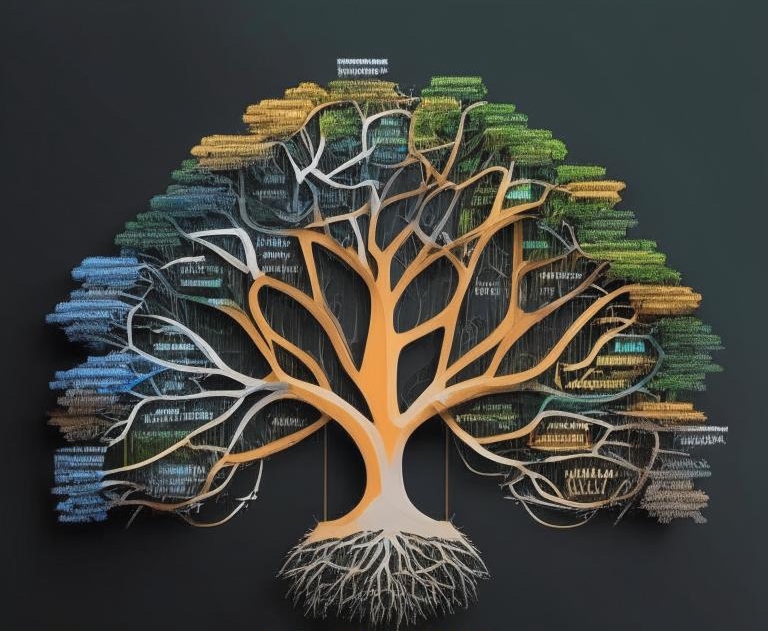Linguistic Turn
by Oleg Sovetnik
The linguistic turn in philosophy and science became a critical milestone in understanding how language shapes our perception and knowledge of the world. In earlier sections, we discussed how epistemology helps us understand the nature of knowledge and its sources, but a key element in this process is language, through which knowledge is formed and transmitted. The linguistic turn allows us to view language not just as a tool of communication but as an active force shaping our reality and conceptual frameworks. In this section, we will examine several phases of this turn, each contributing to the understanding of language’s role in knowledge.
One of the core aspects of the linguistic turn is the realization that knowledge about the world is formed through language. The historian of geometry, Jacques Nicod, emphasized that each discipline can only understand those aspects of reality that are allowed by its own categories. This idea reflects the concept that language and conceptual schemas set the boundaries of knowledge.
The connection between the linguistic turn and epistemology lies in the idea that language becomes the instrument through which knowledge is acquired. In the context of project management and software development, this understanding highlights the need for a shared language that ensures consistency between the domain and technical artifacts.
Thus, project analysis should be complemented by methods from sociology and the philosophy of language, which help us understand how collective knowledge and social processes influence the organization of the domain. A conceptual schema (mindmap) here acts as a key tool, uniting language and knowledge, and creating a structure that is clear and useful for all project participants.
linguistics language philosophy knowledge
Dive deeper
-
Logical Positivism
Philosophy became regarded as an activity of linguistic analysis, where meaningful statements could be separated from meaningless ones.
-
Verification and the Theory of Fact
Emphasis on language as a tool, a means of structuring knowledge, through which facts about reality can be known and verified.
-
Poststructuralism and Deconstruction
Language began to be seen not as a neutral means of description but as an active factor in constructing social and cultural structures.
-
Linguistic Sociology
Sociological epistemology asserts that the object of knowledge is created by the language that describes it.
